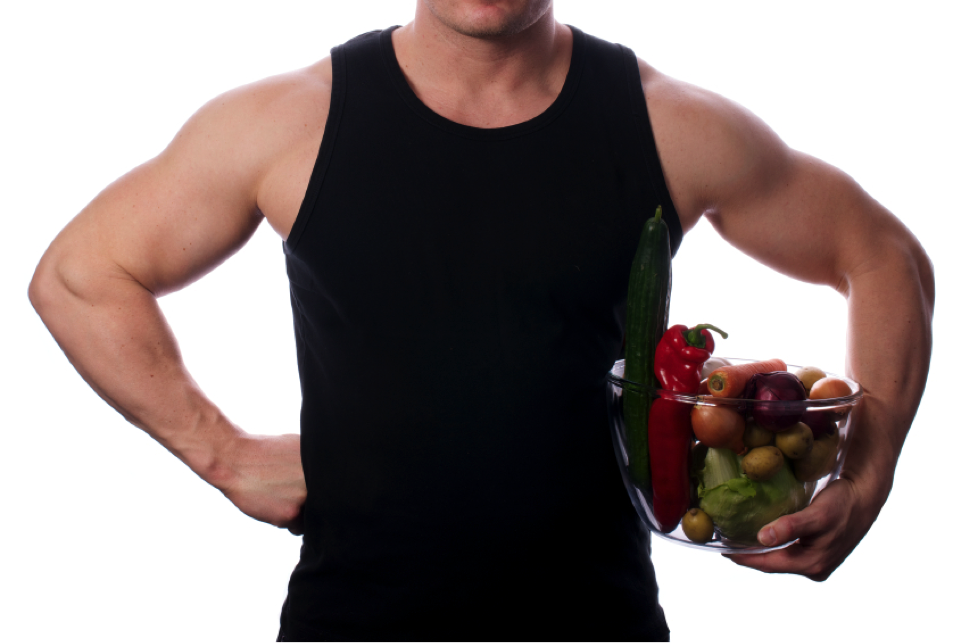 Every athlete has their own unique nutritional needs designed for their training, body composition and with their performance goals in mind. These professionals work closely with a sports nutritionist to make sure that their bodies get the proteins, fiber, carbohydrates, minerals and nutrients that they need to perform at their best.
Every athlete has their own unique nutritional needs designed for their training, body composition and with their performance goals in mind. These professionals work closely with a sports nutritionist to make sure that their bodies get the proteins, fiber, carbohydrates, minerals and nutrients that they need to perform at their best.
For vegetarian athletes, the need to follow a balanced and well-structured diet is even more important. Without a properly balanced diet, they can suffer from problems such as:
- Fatigue
- Decreased performance
- Vitamin and mineral deficiencies
Fortunately, with the help of a trained nutritionist, vegetarian athletes can get all of the proteins, nutrients, and minerals they need to perform at their best. With the proper diet, there’s no reason why vegetarian athletes shouldn’t be able to perform as well as their omnivorous counterparts. In fact, some of the best athletes competing today are vegetarian!
Read on to find out how nutritionists can help vegetarian athletes meet their dietary requirements.
Nutritionists Recommend Plenty of Protein
Athletes need protein to help build up muscle mass and rebuild muscle fibers after a challenging workout. Because protein is often found in meat and animal products, vegetarian athletes need to incorporate other sources of protein into their diets.
A diet filled with foods like tofu, lentils, beans, and nuts gives vegetarian athletes the proteins they need. Certified nutritionists recommend consuming at least a couple of these different sources of protein at different times during the day. Because vegetable proteins are harder to absorb than animal proteins, nutritionists also recommend that vegetarian athletes consume about 10% more protein than athletes that consume meat.
Vegetarian Athletes Get Lots of Fiber
One of the huge benefits of a vegetarian diet is that it includes plenty of fiber. Fiber helps prevent constipation and can also reduce spikes and dips in blood sugar levels during workouts.
Professionals with a nutritionist certificate recommend that vegetarian athletes consume plenty of fiber. But, they suggest limiting fiber intake just before a big competition—especially for athletes prone to cramping and diarrhea—when nerves can make athletes more sensitive to its effects.
Also, because fiber can feel very filling, nutritionists with a sport nutrition certificate suggest that vegetarian athletes eat plenty of small meals throughout the day. Small meals will help them make sure they meet their calorie needs and tackle workouts with high energy levels.
Supplement Recommendations from Sports Nutritionists
While vegetarian athletes have excellent diets filled with plenty of healthy fruits and vegetables, it’s important for them to stay conscious of certain vitamins and minerals that are harder to get from non-meat diets. EatRight Ontario and professionals with nutritionist training in Ontario recommend that athletes get plenty of vitamin D. Plenty of vegetarian foods such as fortified fruit and soy beverages give vegetarian athletes the vitamin D they need to stay healthy. But, for some athletes – especially vegan athletes that don’t consume milk or eggs – taking vitamin D supplements might be helpful.
To prevent iron deficiencies, some nutritionists might also recommend taking iron supplements. However, this should not be done without closely monitoring blood iron levels, since too much iron can be bad for your health.
Other potentially helpful supplements include zinc, calcium, creatine, and vitamin B12.
What other nutritional advice have you found helpful for vegetarian athletes?



